annonces
Heart attack treatment
Heart attack treatment
Heart attack treatment
What the ambulance crew will do
If we believe you are having a heart attack, we will try to reach you as quickly as possible.
When our staff arrive, they will assess you and may give you some drugs to relieve the pain.
In particular, our staff should:
- offer you aspirin so your blood flows more easily through your blocked artery
- offer to spray glyceryl trinitrate under your tongue to improve blood flow to the heart
- ask you about your pain levels before and after any treatment using the Wong-Baker faces pain rating scale
- offer you pain relief.
Unlike many ambulance services in the UK, our staff are trained to diagnose a heart attack using a piece of equipment called a 12-lead electrocardiogram (ECG).
Using the 12-lead ECG, which records the activity of your heart, our staff will diagnose whether you are having a common type of heart attack, often called an ST-elevated myocardial infarction.
If we find that you are having a heart attack, we will immediately take you for specialist hospital treatment.
Read more about the work we’re doing to improve care for heart attack patients.
Where you will be taken
If you are having a heart attack, you will not necessarily be taken to your nearest hospital. Instead we will take you to one of seven heart attack centres in London where a team of specialists will treat you. As a result you will receive the best possible level of care.
For more information about the seven specialist heart hospitals in London, please click on the links below:
Heart attack centre
About Hammersmith Hospital is home to one of London’s eight heart attack centres, providing specialist 24 hour emergency care and treatment for anyone suspected of having a heart attack or an acute heart rhythm disorder in the west London area requiring acute intervention. To ensure you get the best possible specialist care when a heart attack is suspected an ambulance may take you to a heart attack centre rather than your nearest emergency department.
Conditions and treatment
When you arrive at the centre, a number of tests will be performed. These typically include blood tests, electrocardiograms (ECGs) and echocardiography. If it is found that you are having a heart attack, a procedure called coronary angiography is usually performed to image the arteries supplying the heart. If coronary angiography confirms a significant narrowing or blockage, then a stent is inserted into the artery (angioplasty) to open the artery up.
In addition to suspected heart attack and acute coronary sydromes, we also have a primary arrhythmia service where suspected heart rhythm disorders are assessed and treated. These include both slow and fast heart rhythm disorders, which may require medications, temporary pacing wires or pacemakers, controlled delivery of electrical shock through the heart and/or ablation of the source of origin of the arrhythmia.
Following these emergency procedures, patients are carefully monitored during their recovery on one of the cardiology wards with ongoing care and rehabilitation.
Secretary of State for Health and Social Care opens new emergency lift for cardiac patients
A new emergency lift has been installed at Hammersmith Hospital’s heart attack centre (HAC) after a former patient raised almost £100,000 towards the project.
The new lift, officially opened today by Secretary of State for Health and Social Care Matt Hancock, will speed up access to the specialist unit for cardiac patients arriving in an emergency.
Hammersmith Hospital’s HAC is home to one of London’s eight heart attack centres, providing specialist 24 hour emergency care and treatment for anyone suspected of having a heart attack in the west London area.
The project was made possible by one of our former patients, Mark Davies, who underwent emergency surgery at the HAC in 2017 after suffering a sudden and unexpected heart attack at home. After the care and support Mark received from staff at the HAC, he made it his mission to raise money for a brand new lift.
With support from Imperial Health Charity, Mark raised almost £100,000 towards the project after taking on the Athens Marathon - a year to the day after his surgery. He also rallied friends, family and colleagues to support his fundraising efforts over the last 18 months.
Secretary of State for Health and Social Care Matt Hancock paid tribute to Mark’s fundraising efforts and following a tour of the unit unveiled a commemorative plaque dedicated to Julie Bart, the NHS 111 call handler who sent an ambulance to Mark’s home after realising he was having a life-threatening heart attack.
Speaking of his experience, Mark Davies said: “The staff at the hospital were fantastic. They were all so good from the minute I arrived. They were an absolutely top team and were very kind in the time I was there, so I really wanted to do something to help.”
Professor Tim Orchard, Chief Executive of Imperial College Healthcare NHS Trust, said: “We are so grateful for the support of Imperial Health Charity and fantastic fundraisers like Mark who have donated so much of their time and effort to make this happen. It’s a great example of how we can collaborate to drive real improvements to the care we provide for our patients.”
Antibodies can protect against heart attacks, Trust researchers find
Antibodies could protect against heart attacks, according to research conducted at Imperial College London.
The research, which was funded by the National Institute for Health Research Comprehensive Biomedical Research Centre at Imperial College Healthcare NHS Trust, has been published this week in the journal EBioMedicine.
In collaboration with Lund University in Sweden, researchers studied a population of 10,000 patients with high blood pressure of which 87 had developed coronary heart disease (CHD) and measured the antibody levels in those who had heart attacks as well as control patients who did not. In a second study, in collaboration with researchers from the Thorax centre in Holland, they measured antibody levels in a further 143 patients who had their heart arteries imaged with cutting edge techniques.
Researchers found that those who had heart attacks in the first study, as well as those whose arteries had unstable fatty plaques in the second study, had much lower levels of an antibody called IgM anti MDA-LDL. In the first study, those with high levels had 70 per cent less chance of developing heart disease over nearly five years of follow up. The second study provided some explanation for those findings, in that those with highest levels of antibodies, were well protected from developing dangerous plaques that are more prone to rupturing and causing a heart attack.
Not only could this finding help doctors to more precisely identify patients at risk of heart attack, it also raises the possibility of using therapies that improve the immune system – such as vaccines and antibody injections – to reduce the risk of a heart attack.
The researchers don’t yet know why some people have higher levels of this specific antibody. Although, it may be that some people inherit these protective antibodies, others may have produced them in response to common bacterial infections in childhood.
Atherosclerosis is the build-up of fatty plaques in the walls of the arteries that lead to the brain or heart. If an atherosclerotic plaque ruptures, a deadly blood clot can form and block the blood supply to the heart or brain, causing either a heart attack or stroke. Each year in the UK over 100,000 people die as a result of atherosclerosis.
Lead researcher Dr Ramzi Khamis, consultant cardiologist at Imperial College Healthcare NHS Trust and BHF Clinical Research Fellow at the National Heart and Lung Institute, Imperial College London, said:
“We are one step closer to figuring out how the immune system protects from dangerous heart attacks. We hope that our research will help us find patients at the highest risk, as well as help us to develop therapies that target the immune system, which seems to play an important part in preventing heart attacks.”
Dr Noel Faherty, senior research advisor at the British Heart Foundation, which funded the research, said:
“Each year in the UK over 100,000 people die from a heart attack or stroke that has been caused by rupture of a fatty deposit, called a plaque, on the inside of an artery. By discovering which patients have plaques that are more likely to rupture and why we can save thousands of lives.
“We already know that our immune system takes part of the blame in causing these fatty deposits to form and rupture. But the whole story of how our immune system is involved in heart and circulatory diseases is a lot more complex. More research is needed, but in the future, we might be able use new drugs to tweak the immune system in different ways to prevent people having a heart attack or stroke.”
New heart procedure pioneered by Trust set to become global standard
A new tool for assessing the narrowing of the heart's arteries, developed by clinicians working at the Imperial Biomedical Research Centre, part of Imperial College Healthcare NHS Trust, is set to be adopted internationally as the new global standard in evaluating patients’ suitability for a stent.
Coronary stenosis occurs when there is a narrowing of the coronary arteries which deliver oxygen-rich blood to the muscle of the heart. When these blood vessels become blocked or are narrowed, it can affect how the heart functions, potentially leading to chest pain, heart attacks and heart failure.
The new technique, known as instantaneous wave-free ratio (iFR), allows clinicians to measure the pressure loss caused by the narrowing in these blood vessels to see whether the patient is suitable for a stent – a type of mesh tube used to hold open clogged arteries and increase blood flow.
Like the current technique for measuring pressure loss, known as fractional flow reserve (FFR), iFR measures pressure using a thin wire in the coronary artery, but unlike FFR it does not require powerful drugs to open the blood vessels – which can cause patients severe crushing pain, low blood pressure and breathing difficulties. Instead iFR uses a mathematical algorithm to take measurements when the heart is relaxed and the coronary blood flow is high.
The technique has been found to be a much more comfortable procedure for patients, taking less time and being more cost effective than the current clinical standard FFR, potentially making it cheaper for healthcare providers.
Dr Justin Davies from Imperial College, Imperial BRC and Hammersmith Hospital, who developed the iFR and led the research, said:
“We have been using the iFR technique on suitable patients at Imperial College Healthcare NHS Trust for a number of years and it has also been adopted by another 4,500 cardiology centres around the world.
“With our research demonstrating the benefits for patients, as well as iFR’s recent entry in the 2017 advanced diagnostic imaging services guidelines, we expect iFR will have huge implications internationally, for cardiologists and their patients over the coming years.”
Notes to editors
1. The iFR is licensed to Volcano-Philips by Imperial Innovations, Imperial College's technology transfer partner.
2. Pressure is measured in the coronary artery before a stent is fitted to ensure the artery is narrow enough for a stent to be useful.
3. iFR received Food and Drug Administration approval in the United States in 2013 leading to its adoption by 4500 cardiology labs worldwide.
4.“Use of the Instantaneous Wave-free Ratio or Fractional Flow Reserve in PCI” J.E. Davies et al., published Saturday 18 March 2017 in the New England Journal of Medicine.
5.The NIHR Imperial Biomedical Research Centre (BRC) is a partnership between Imperial College Healthcare NHS Trust and Imperial College London. It undertakes translational, experimental medicine research – taking discoveries from basic laboratory science and facilitating their translation quickly and efficiently into clinical settings, delivering improved health outcomes for patients.
Hammersmith Hospital
Du Cane Road, London W12 0HS
Contact:
Inpatient admissions
020 3383 1663
020 3383 8986
+44 20 3311 3311
Symptoms of heart attack. First aid for heart attack
Heart attack is a serious pathological condition caused by lack of blood supply to the acutely emerging cardiac muscle (due to blockage of blood clots and / or spasms, usually in the atherosclerotic plaque of the arteries feeding the heart), as well as the development of ischemia and necrosis (dying off) of part of this muscle.
Heart muscle necrosis is a myocardial infarction. In the first hour of the attack may come the so-called sudden cardiac or coronary death.
Currently about a third of heart attacks in people living in Europe, is fatal. And it's pretty much, because the number of heart attacks in the hundreds of thousands of cases each year, and is the leading cause of death of the population in civilized countries.
Most often, the heart attack death occurs during the first two hours and is associated with the inability of the heart to maintain normal blood circulation in the body. The heart attack survivor’s chances for recovery from the illness increases every day, drifting undergone attack from the incident.
Risk of heart attack is what people usually do not pay enough attention to appeared pain and other symptoms typical of heart attack, which is the main mistake that leads to irreversible pathology and death.
It is therefore necessary to know the basic heart attack symptoms, which may indicate a heart attack.
One of the most common symptoms of a heart attack is prolonged pain, which is localized in the chest. At that time the patient feels unpleasant pressure in the chest, sometimes a heartburn.
Pain may occur in the left half of the body: in a hand to the forearm, scapula, the left side of the neck. It is also possible the appearance of pain in the hands, in the mandible, the shoulders, in the upper abdomen. Pain with prolonged and can be constricting, sharp, burning and aching.
Characteristic symptoms suggestive of heart attack is shortness of breath, which is evident even at minimal activity, as well as at rest. This is due to the fact that the heart does not receive the necessary amount of blood to its normal functioning. In addition, a person may feel weakness, heart palpitations. He may be sweating.
Attention should be drawn to the heart in the case of undue fatiguability. At the same time the fatigue persists for several days, weeks or even months. Stomach pain, nausea and vomiting can accompany the heart attack. These symptoms are rarely associated with heart disease, but one should pay attention to them if they occur in normal diet and are not caused by intake of poor-quality food.
Sometimes temporary loss of consciousness can occur.
Heart attack may be preceded by palpitation, which is manifested as an abrupt and arythmic pulse.
The predecessors of a heart attack may be conditions such as anxiety, discomfort, and insomnia.
However, chest pain is not always symptom of heart attack because it is also characteristic of intercostal neuralgia. In order to specify the disease, it is necessary to pay attention to several points:
- Conditions of pain beginnings. Pain characteristic of cardiac disease, is associated usually with a load (physical or mental). While neuralgia pain can occur when a sharp turn of the torso or for no reason.
- Conditions for termination of the pain. The heart attack pain ceases few minutes after taking nitroglycerin, while in neuralgia this drug is ineffective.
- The nature of pain. In cardiac pathology pain is constricting, sharp, stabbing, aching. In neuralgia – paroxysmal, stabbing, belting, aggravated by movements of the trunk, during coughing, sneezing, deep breathing.
Besides intercostal neuralgia similar symptoms have a number of diseases.
In the case of nausea and stomach pain heart attack can be confused with food poisoning, perforated gastric ulcer and acute cholecystitis.
When right-sided heart aches this pathology is similar to the symptoms of pneumonia or pleurisy. In contrast to these diseases, heart attack is almost always accompanied by symptoms such as weakness, drop in blood pressure, shortness of breath.
Heart attack symptoms are similar to acute pericarditis. A distinctive feature of pericarditis are noises in the chest, which can be listened with a stethoscope. When pericarditis pain occurs with fever, increased erythrocyte sedimentation rate and leukocytosis. The pain subsides while patient is in the sitting position.
Heart attack symptoms are similar to herpes zoster. To distinguish this disease from heart disease, it is necessary to examine the places where there is pain. At herpes zoster the pain is accompanied by vesicles along the intercostal nerve. Diagnosis is clarified by no change in heart function with ECG.
ECG and determination of blood cardiac enzymes play a key role in determining the nature of the pathological process.
CardioVisor applying improves detection of deviations that lead to heart attack, from 20 (using normal ECG) up to 80 percent (using CardioVisor).
Classical ECG has several drawbacks such as low sensitivity and specificity with respect to certain pathological processes in the heart. One of the modern ways to eliminate the drawbacks of the classical method of studying of the heart functions is the dispersion mapping of heart signals, which is implemented by the device "CardioVisor." Analysis of waves occurs when using the classic ECG, while the modern method of dispersion mapping is aimed at low-amplitude vibrations analysis, which can judge about the impending myocardial pathologies well before changes in the waves. Therefore, using this modern method, you can get information about an impending disease at earlier stages.
The great advantage of this service is that the person has important information about his heart state, and in case of threat of heart disease finds out when to see doctor much earlier than with standard electrocardiography,
As is generally known relapse is very often after the heart attack. Hence continuous monitoring of patients is necessary. Using the Kardi.Ru service, anyone is able to monitor the heart functioning, examine himself at home. Of course, this enables monitoring of the early stages of recurrence and time to consult a doctor.
In case of any abnormalities the person is immediately notified that can not only prevent the beginning of irreversible processes, but very often to save his precious life. Thanks to Kardi.Ru anyone gets the opportunity always to be aware of its main organ – the heart – functioning.
What should you do if there are the symptoms of heart attack?
The key thing to remember in case of a heart attack – the longer medical care procrastination, the greater the chance of heart muscle damage. Therefore, if there are such symptoms you must call up ambulance.
Besides:
- The patient should sit in an arm-chair, or lay in bed with raised headboard.
- Give the patient aspirin 0.25 g (chew and swallow the pill) and nitroglycerin 0.5 mg (put under his tongue and not swallow).
- Provide supply of fresh air.
It is necessary to monitor carefully the health state of the patient. If the pain subsided, then the patient just need rest. If after nitroglycerin administration there are weakness, shortness of breath and sweating, the patient should raise the legs, drink a glass of water, and no nitroglycerin.
If the symptoms of heart attack persists (about 5-7 minutes after the first dose of drugs), the second tablet of nitroglycerin (0.5 g) must be given.
If pain persists after the second drug administration, nitroglycerin should be given the third time.
If the patient lost consciousness before the arrival of the doctor, first of all, check his breathing, heartbeat and pulse. Further, if the heartbeat is heard, but the person is not breathing, start CPR, "mouth to mouth". The patient's head should be kept thrown back in order to avoid the throat blocking by the tongue. If there was a cardiac arrest, start cardiac massage. It needs to be alternated with CPR – to 15 pressing on the chest make three artificial breaths.
Upon arrival, the doctor should be informed about all the medications that were given to the patient, as well as medications that cause the allergic or intolerance in patient. Regularly recorded ECG monitoring greatly facilitates the doctor’s task so the doctor will can assess the development of disease.
Remember: the late visit to the doctor can cost life.
Imperial College Healthcare NHS Trust
Telephone:
020 3311 3311
020 3313 5000
i.outpatientappointments@nhs.net
- Emily
- la Ville
- Hammersmith Fulham (London)
- Country
- United Kingdom
- Adresse
- South Wharf Road
St Mary's Hospital
London W2 1NY
Montrer sur la carte - Numéro de téléphone
- Montrer le numéro de téléphone
- Montrer le courrier électroniqueCette adresse e-mail est protégée contre les robots spammeurs. Vous devez activer le JavaScript pour la visualiser.
- Type de l'annonce
- Recherche d'emploi
- Catégorie
- Health and Beauty Services
- Subcatégorie
- Physicians
- La date de création
-
jeudi 7 novembre 2019
il ya 6 ans et 3 mois - Quantité de visionnages
- 4168
- ID de l'annonce
- 2307






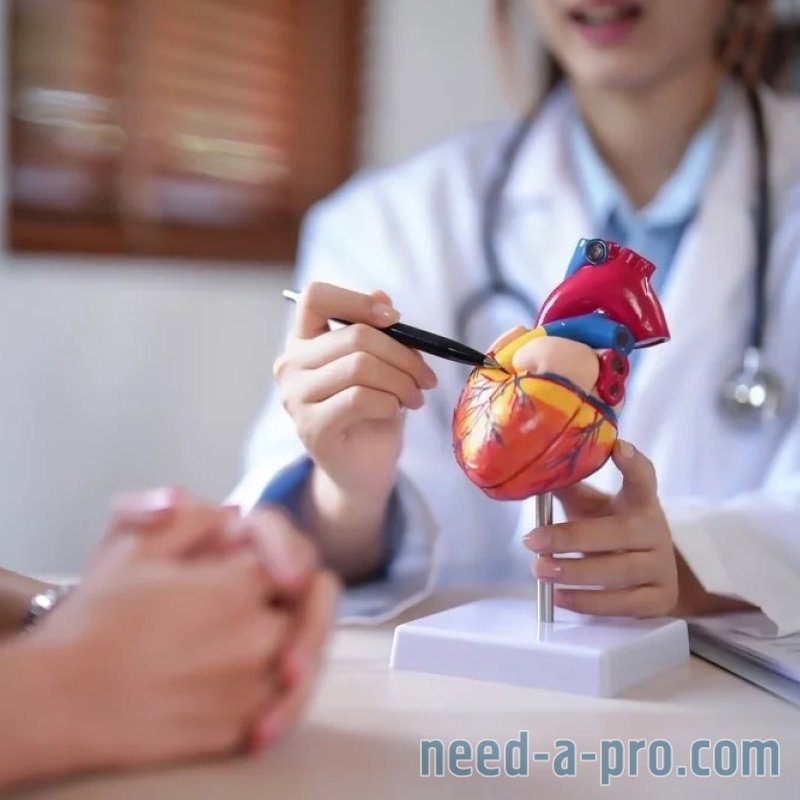
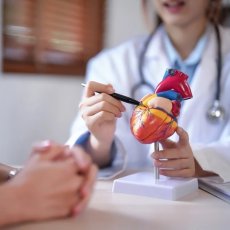
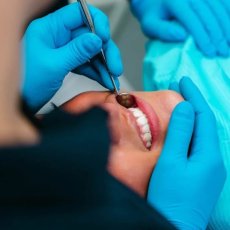
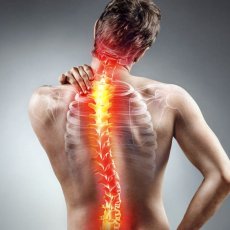

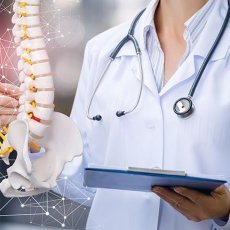



 Vectora Design
Vectora Design